
In the wake of the COVID-19 pandemic, the working world has been affected by a phenomenon unanimously referred to as the Great Resignation or, more colloquially, the Big Quit.
Employees have been resigning from their jobs in droves, determined to find more fulfilling opportunities.
Software developers aren’t exempt.
A subset of the Great Resignation called the Great Developer Resignation involves developers leaving their previous positions in favor of more lucrative options.
And the trend is still ongoing, with no indication of slowing down.
In this article, we’ll explain what has led to this development, show you the developers’ point of view, and, ultimately, help you combat excessive turnover.
Table of Contents
What is the Great Developer Resignation
The COVID-19 virus has undoubtedly changed the workplace.
Remote work has become commonplace, almost all cafes and restaurants offer takeaway, and delivery services boast no-contact options.
However, the Great Resignation is the most prominent change. What brought it about?
In the immediate aftermath of the pandemic, two phenomena emerged.
Firstly, the changed working conditions during Covid inspired many employees to reevaluate their jobs and really think about whether they enjoyed their work.

Get unreal data to fix real issues in your app & web.
Secondly, the end of economic stagnation combined with the result of this reassessment (as well as the loss of life caused by the pandemic) has created a tectonic shift in the labor market, resulting in countless job vacancies.
In the case of software developers, the shift to remote work in the overall workforce and the need for high-level software that the technical nature of such work required, the pressure was especially intense.
Compelled to work incessantly from home, often delving into overtime, developers saw the lines between their personal and professional lives blurred.
As a result, many of them ended up overworked and burnt out.
For a more nuanced understanding of these developments, take a look at the graph below:
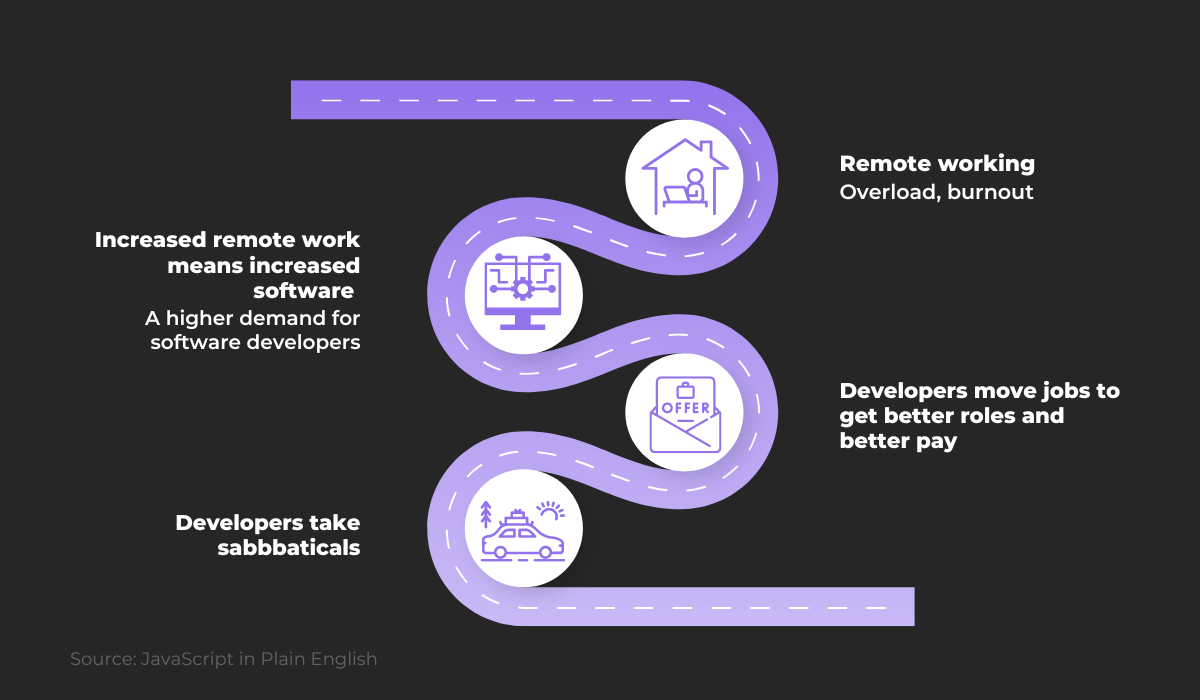
Because of all this, software developers wholeheartedly joined the Great Resignation. The numbers speak for themselves:
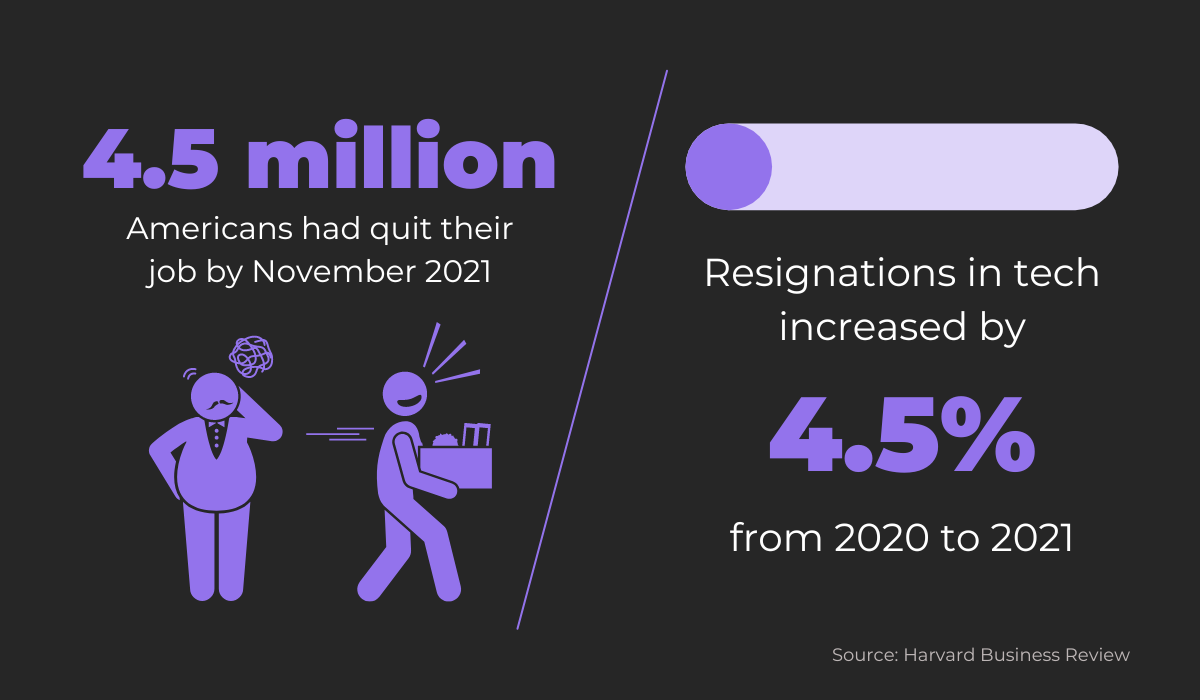
As you can see, resignation in software development has clearly increased post-pandemic, hence the name Great Developer Resignation.
However, as those shifts coincided with the ongoing rise of remote work, the need for software developers has also increased. Countless new job opportunities have been created.
Following this development, software engineers realized that alternative positions were available and started quitting their roles in favor of the new job vacancies.
In extreme cases, some developers even take a sabbatical and enjoy a prolonged break from employment.
In sum, it’s a developer’s market—they are re-assessing their attitude toward work and have their pick of positions.
If a company doesn’t meet a developer’s needs, the solution is simple. They’ll resign and find an alternative.
Software developer Jonathan Caballero summed up the outlook he shares with many others like this:
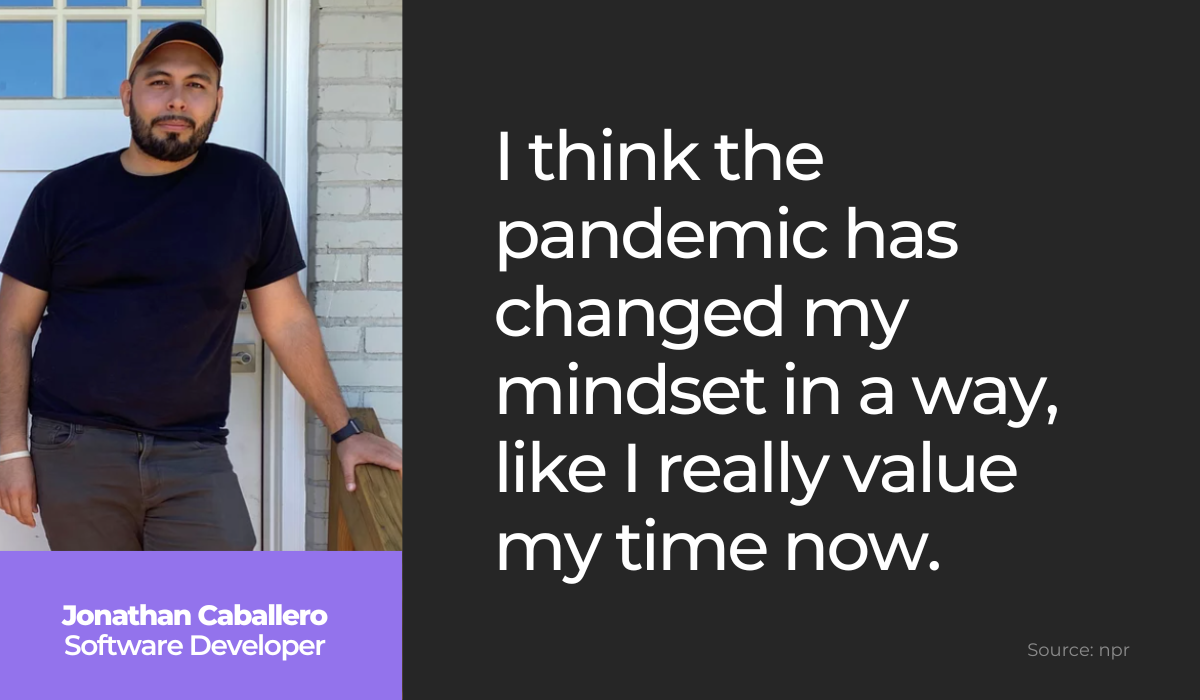
Many software developers’ priorities have changed in the wake of the pandemic and they now want more from their work environment—this, above all, is the chief reason for the Great Developer Resignation.
Why developers are resigning
Developers are dissatisfied with their working conditions, and they are resigning as a result. However, what exactly constitutes this unappealing environment?
What is so off-putting to developers?
Stack Overflow has surveyed over 500 developers to find the answer and revealed the following:
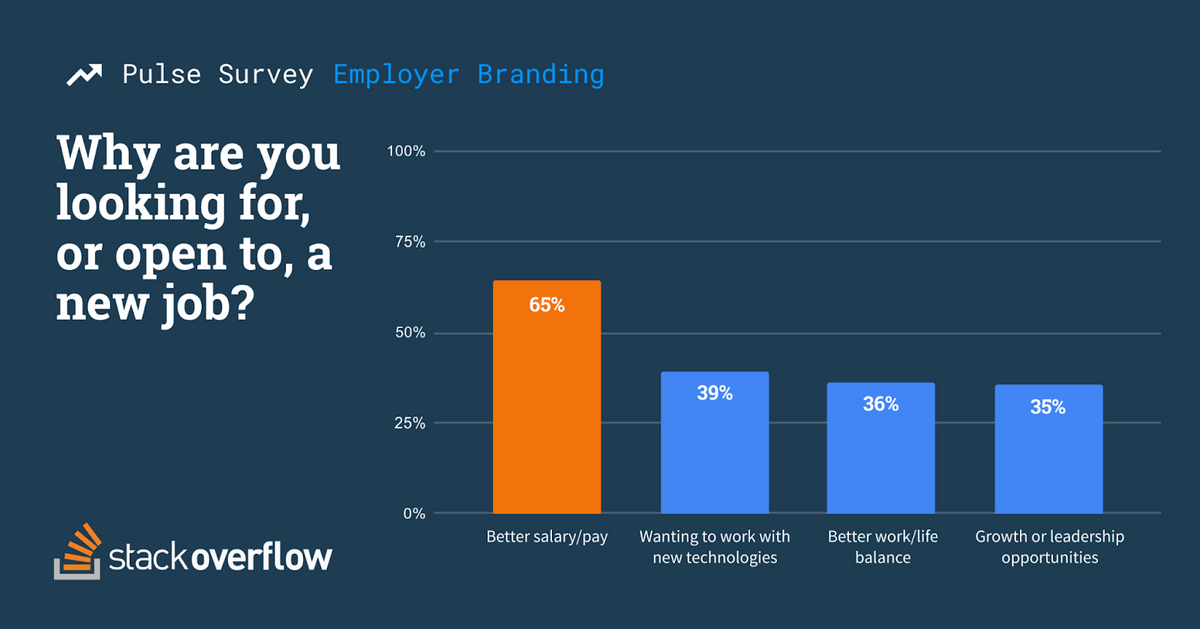
As you can see, almost two-thirds of developers are unsatisfied with their current salary, whereas a third of them are in search of an improved work-life balance as well as professional development opportunities.
To understand the motivations behind resigning, you’d do well to examine each of the following aspects.
Poor compensation
It can be demoralizing and embarrassing for developers to earn less than what they deserve, especially when they’re aware of how much value they bring to the company.
As a result, the chief reason why developers leave their jobs is poor compensation.
After all, if a developer requests and doesn’t receive a higher salary at their current workplace, they’ll have no problem finding an employer who can accommodate them.
An HR manager at a technology company recently confessed that they’re not always able to find a compromise with their employees:
There are many disgruntled employees who could not be provided with a decent solution, and it is just part of the risk. Either the supervisor is not open for discussion, or there is no budget for a pay raise.
If developers can command a higher salary elsewhere, one that is thoroughly deserved and more indicative of their abilities, it’s not hard to imagine why they’d be tempted to leave.
Being underpaid decreases motivation like nothing else, as it sends the message that the developer is not appreciated.
And who would want to work where they’re not properly respected?
Poor work-life balance
No one wants their professional life to be the only life they have. The standard working time is 40 hours a week, and developers must stick to this boundary.
Otherwise, their personal lives may suffer, and their work-life balance can quickly plummet.
If developers are overworked or constantly logging overtime hours, they will only grow dissatisfied and unhappy and therefore be incited to leave.
We can see evidence of this with the recent Overwatch 2 scandal. Many developers quit the project, and the launch of the game kept getting delayed for years.
The reason for the mass exodus? One of the game’s producers, Tracy Kennedy, reveals:
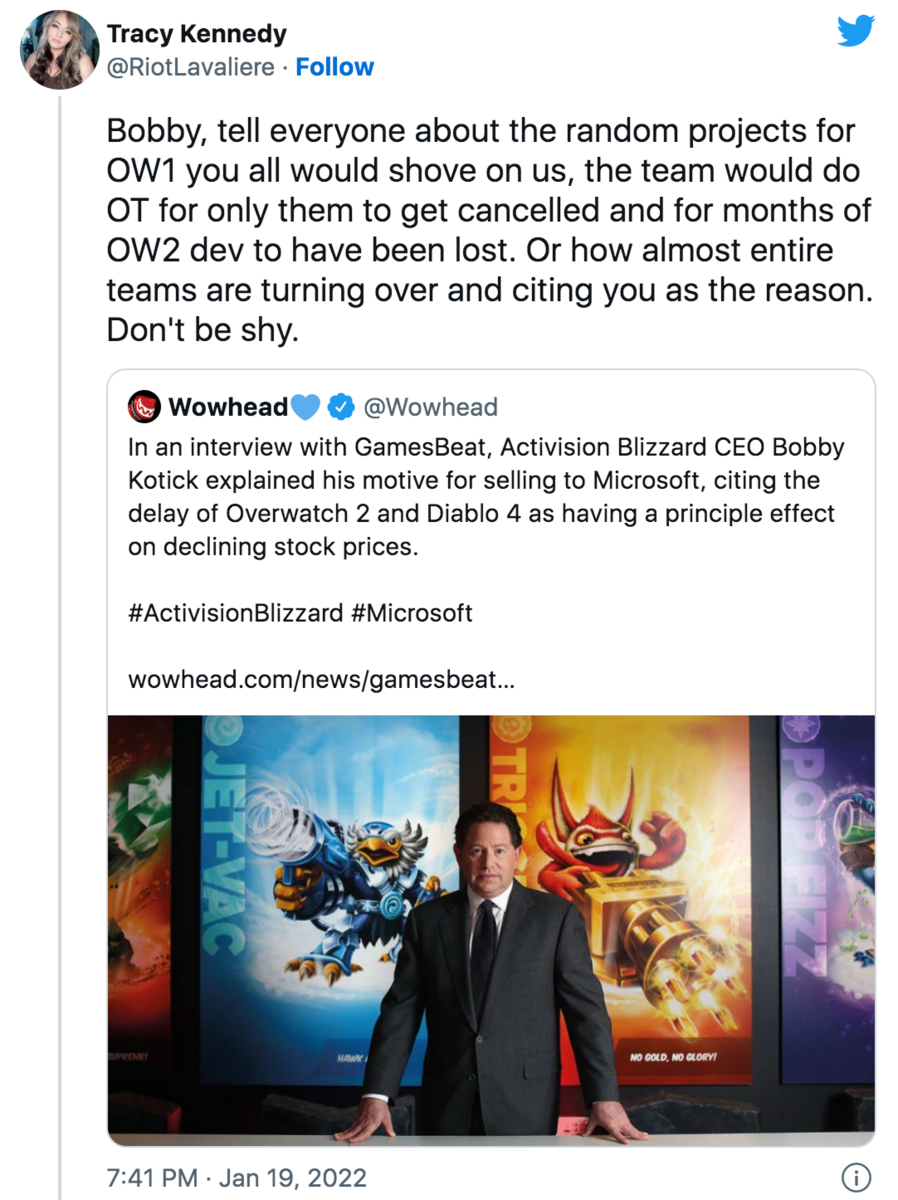
The company’s CEO reportedly pushed overtime and surprise projects on the developers, forcing longer hours in the office.
Exhausted and furious, teams of developers abandoned the project. It’s not hard to imagine why, as their work-life balance had become decidedly disrupted.
Burnout
When bad days at work start adding up and hours grow longer, developers soon become both emotionally and physically exhausted.
If this continues for too long, the exhaustion becomes permanent, and the developers’ health spirals. In other words, they experience burnout.
The World Health Organization defines burnout as follows:
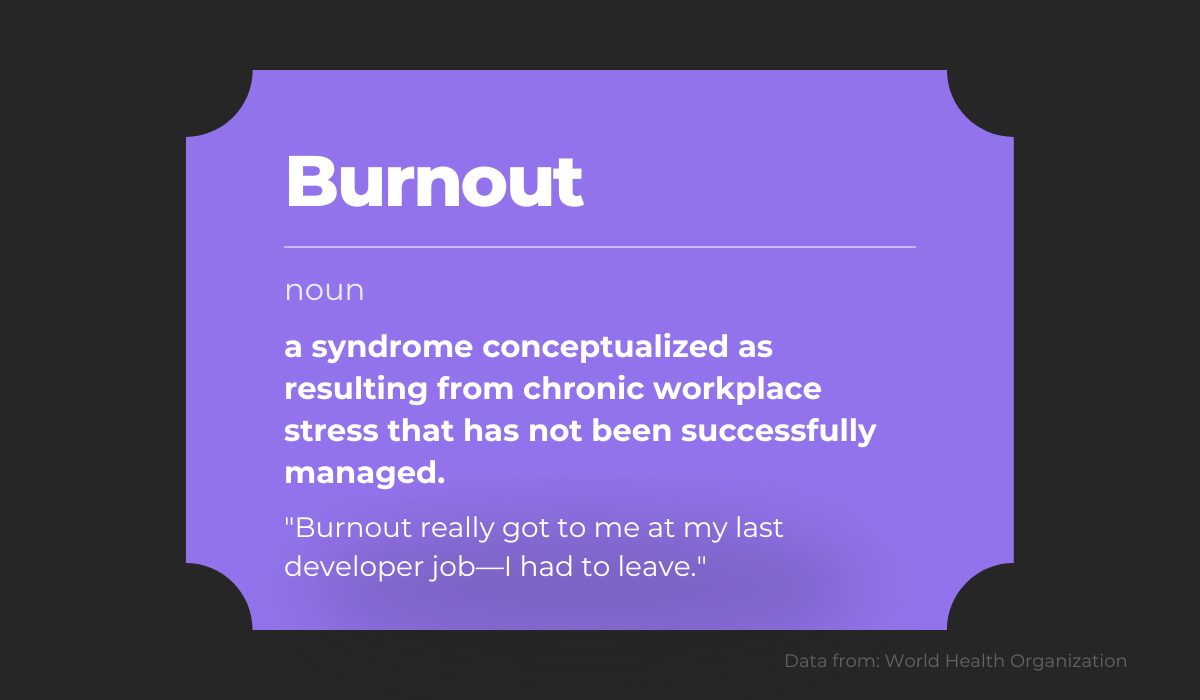
In other words, increased stress at the workplace results in an actual medical condition.
It’s easy to see why burnout would cause developers to resign, as the condition significantly affects one’s well-being.
Sadly, burnout is not uncommon among developers. Take a look at the statistics:
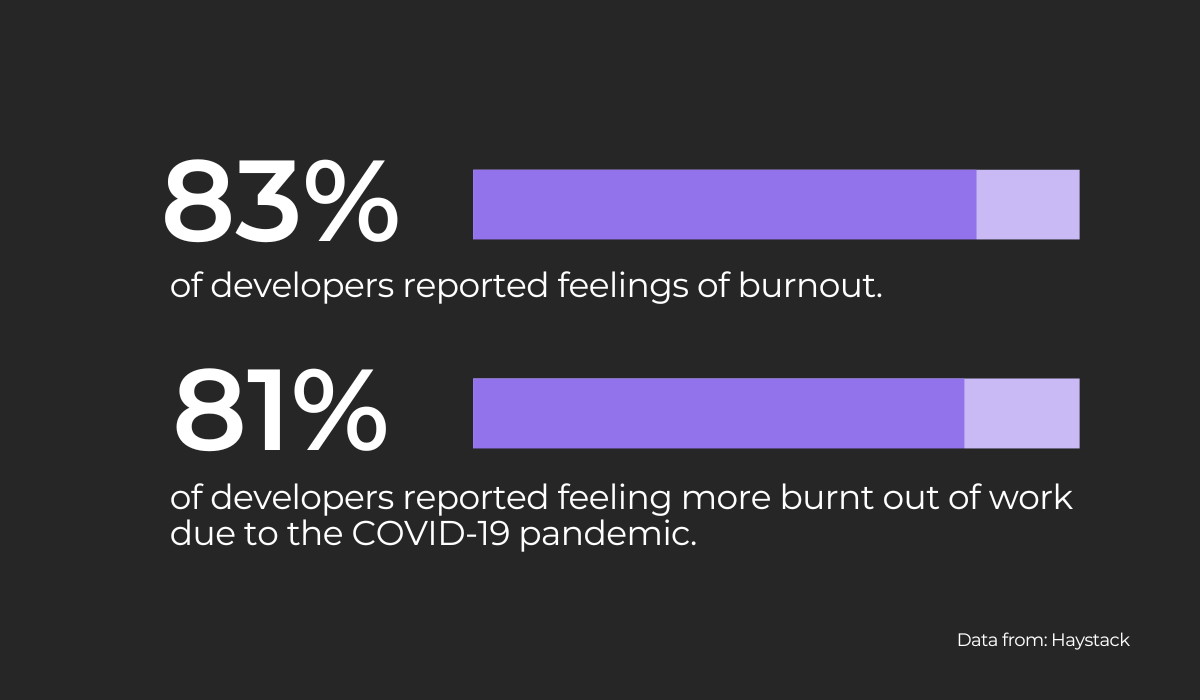
The pandemic and its aftermath have only exacerbated the problem of burnout, with developers being bombarded with work and often logging longer hours.
And with burnout comes increased turnover—no developer will stay in a position where their health is suffering.
Better job opportunities
If you could do better, why wouldn’t you? If you found a job with a higher salary, unlimited PTO, remote work options, well-being packages, and more challenging work, wouldn’t you take it?
Why not?
The above is how most developers think these days.
There are so many employment choices available to them, that it’s often companies fighting for quality developers as opposed to developers fighting for positions at quality companies.
Mark Chaffey, co-founder and CEO of hackajob, summarized the tech job market best:

Developers are spoiled for choice. They have the freedom to pick between multiple job opportunities and weigh the pros and cons to select the best fit for themselves.
Research backs this up:
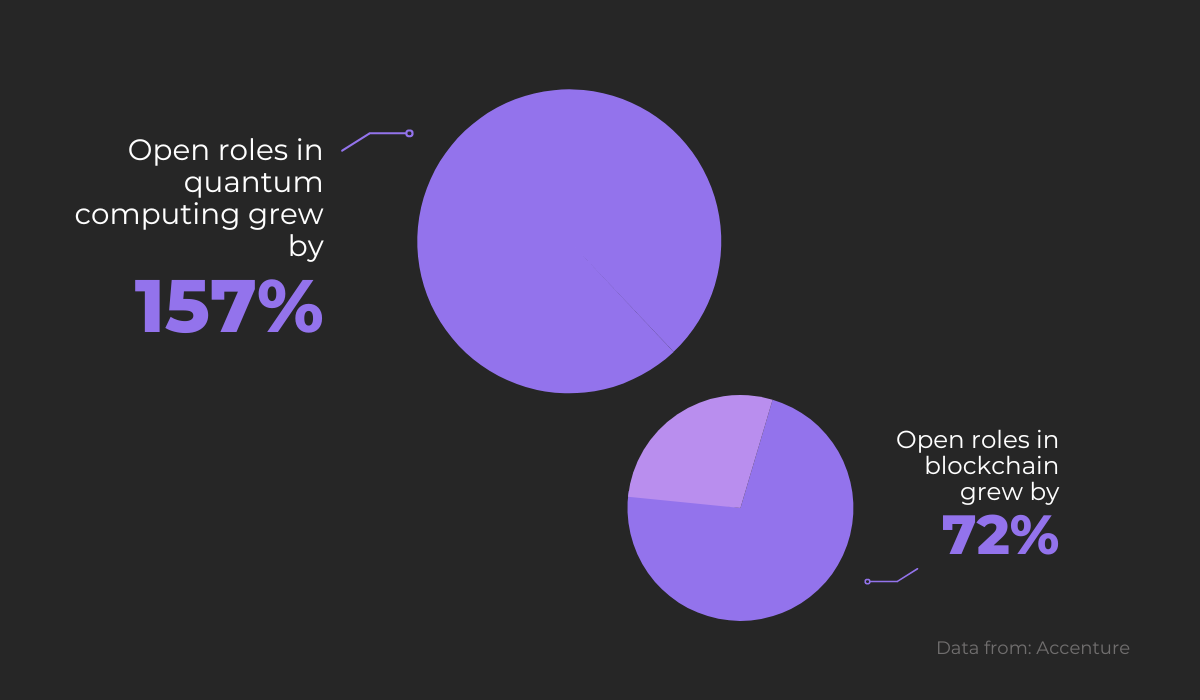
With such a considerable job vacancy increase in these two fields alone, it isn’t difficult to imagine how other software development sectors are doing.
Considering the countless job opportunities available, developers can easily find someone better than their current employment.
How to fight the Great Developer Resignation
Now that you understand why the Great Developer Resignation is happening, you can take active steps towards fighting it and retaining your software developers.
There’s no point in just despairing and resigning yourself to your developers’ resignations. Instead, take measures that will encourage your employees to stay.
As a starting point, Stack Overflow has identified the following essential factors developers look for in an employer:
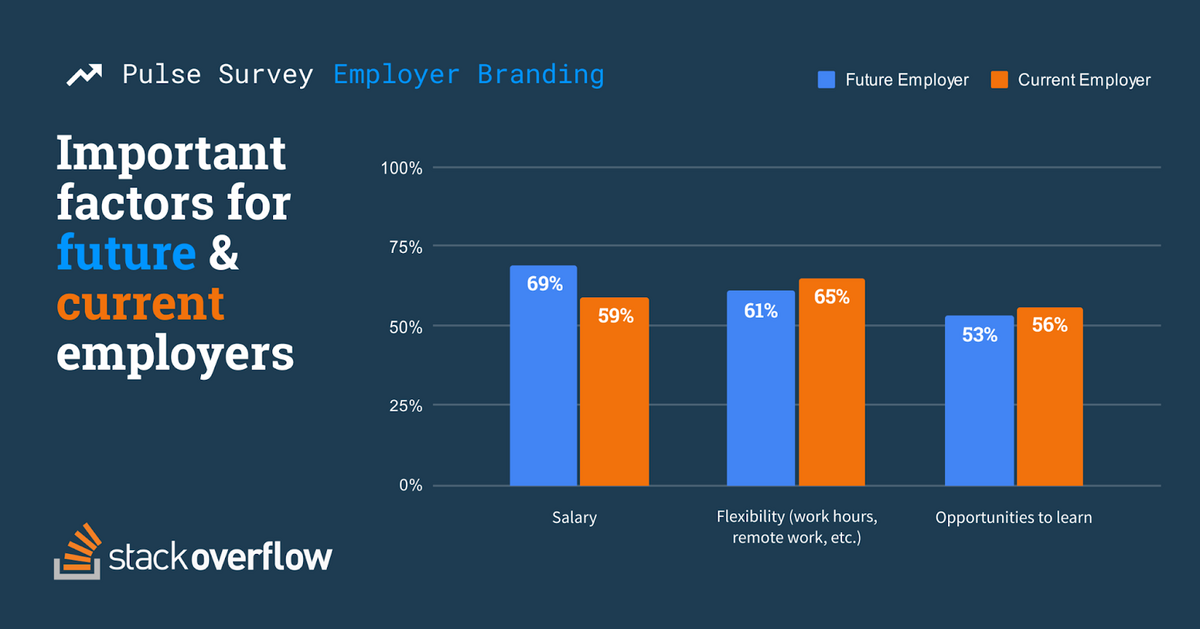
Keep these characteristics in mind, and try to make your company appealing to developers. Examine the following approaches for ideas on how to begin.
Offer a competitive salary
Realistically speaking, most companies would have a tough time getting their feet off the ground without developers.
Every company is a software company in today’s digital world, so reliant on technology.
Given the importance of developers, you’d do well to offer them a competitive salary.
This will send the message that you value their work, and developers will therefore be more motivated to stay. After all, employees want to remain where they know they are appreciated.
Several companies have already realized this.
Take a look at some recent developments:
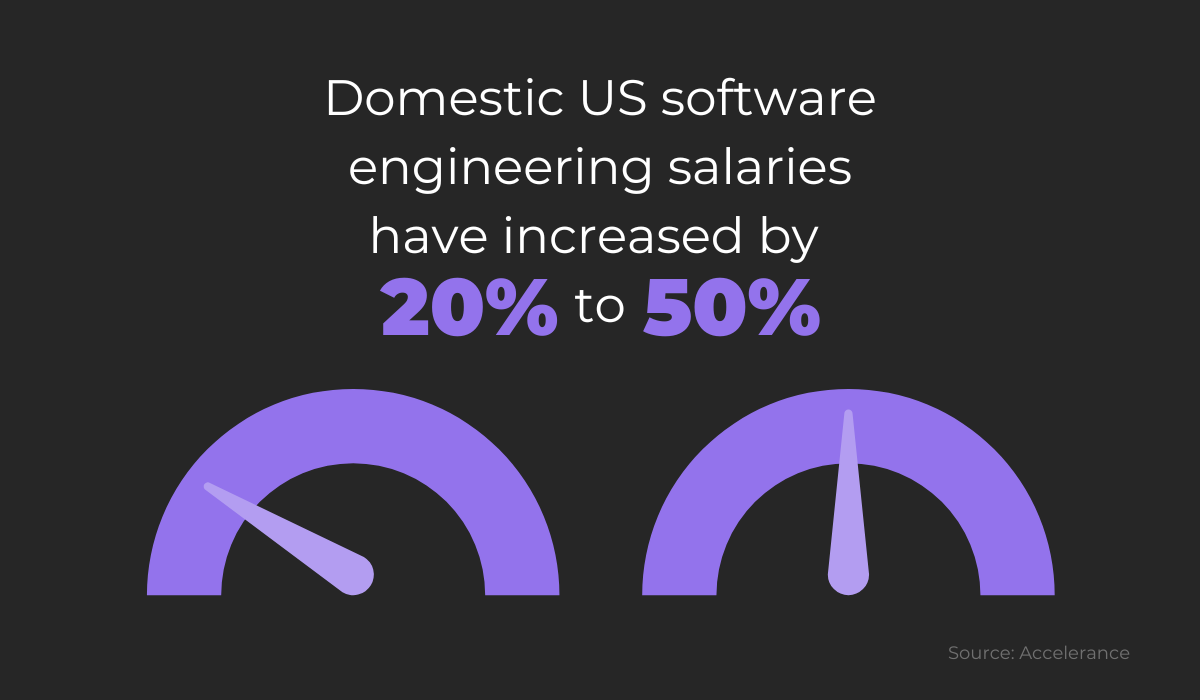
Salaries are skyrocketing as businesses are starting to realize the value of a loyal software engineer and putting in the effort necessary to retain their best developers.
If your business has the budget, it’d be a good idea to stretch salaries in your developers’ favor.
Also, if you lack the funds, you don’t have to increase the baseline salary but can still offer sporadic bonuses for a job well done.
Whatever method you choose, your developers will appreciate the higher compensation and favor your business as a result.
Offer work flexibility
If offering a competitive salary isn’t viable for your business yet, don’t worry.
Smaller firms can rarely financially compete with behemoths like the FAANG companies, but there are other perks they can offer developers. For example—workplace flexibility.
Not every developer works well in a typical 9-5 office environment. Coding is hyper-focused, solitary work that often requires working in a flow state.
Some developers best achieve this state late at night, others early in the morning.
Furthermore, the interruptions that come with an office environment can shatter a developer’s focus and set their coding back.
For this reason, some developers prefer working from home, with fewer interruptions.
On the other hand, others may not have the suitable working conditions available at home, or they may prefer to come into the office for an easier separation of their professional and private lives.
Others still will thrive in the hustle and bustle of the office, where they can exchange ideas with their peers.
Companies are realizing this and are offering more flexibility to developers.
As such, this is how Twitter approached opening its offices post-pandemic:
While opening our offices is our decision, when and if our employees come back, will be theirs. So if our employees are in a role and situation that enables them to work from home indefinitely or split their time between their home and the office, we will support that. This is about providing our employees with the flexibility to determine how and where they work best.
As you can see, Twitter retained remote work while also offering the possibility of coming to the office, as they wanted to offer their employees the best working conditions for them individually.
In other words, they provided work flexibility, and you’d do well to follow in their footsteps.
Encourage open communication
You’ll have no way of knowing your developers’ feelings unless you speak to them.
They could be scrambling to reach a deadline, butting heads with the designers, or feeling exhausted by a two-hour commute.
However, you can’t know unless you encourage open communication.
As long as you and your developers can talk honestly and frankly, you can take active measures to improve the situation.
If we take the above examples, you could potentially extend the deadline or add another developer to the task, organize a designer-developer meeting, and possibly allow working from home.
Any of these options is preferable to having the developer resign.
Ankit Agarwala recently commented on the measures necessary to retain developers:

The PageGroup Managing Director firmly believes in open communication as the chief avenue to fighting resignation and welcomes all employee feedback on the organization’s operations.
Provide more opportunities for advancement
You’d be hard-pressed to find a developer without the motivation to learn new skills.
Technology is a fast-growing, dynamic industry that changes daily, and developers must constantly expand their skill set in order to stay current.
Furthermore, developers tend to enjoy learning and frequently pursue the opportunity to enrich their knowledge.
All in all, providing more opportunities for advancement is a sure strategy to tempt developers to stay.
For example, Liberty Mutual runs an internal training initiative dedicated to upskilling its employees.
Neil Duggan explains the concept:
For example, perhaps someone wants to pursue a career in data engineering: we have data engineering groups, software engineering groups… when they complete this program, they can be assigned to a team that aligns with their personal interests within the technology organization, and this allows them to really propel their career.
With these types of programs, employees can easily gain new skills without the hassle of locating a course, paying out of pocket, and finding the time to complete it.
Instead, the company takes care of all those details, providing a smooth learning experience for its employees—something developers will undoubtedly appreciate.
Conclusion
The Great Developer Resignation is still ongoing.
Software developers remain highly in demand, and if their current employment isn’t to their satisfaction, they won’t find it hard to get a new job.
Poor compensation, a lack of work-life balance, burnout, and better job opportunities are all factors that contribute to developers’ desire to resign.
To fight turnover, offer a competitive salary as well as work flexibility, encourage open communication, and consistently provide more opportunities for advancement.
These are all benefits your developers will hugely appreciate.
With those weapons in your arsenal, you can fight the Great Developer Resignation and entice your developers to stay.




